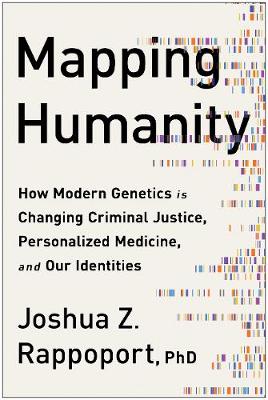(To see other currencies, click on price)
MORE ABOUT THIS BOOK
Main description:
"A good companion for those with a science background interested in learning more about human genetics."
-Booklist
Thanks to the popularity of personal genetic testing services, it's now easier than ever to get information about our own unique DNA-but who does this information really benefit? And, as genome editing and gene therapy transform the healthcare landscape, what do we gain-and what might we give up in return?
Inside each of your cells is the nucleus, a small structure that contains all of the genetic information encoded by the DNA inside, your genome. Not long ago, the first human genome was sequenced at a cost of nearly $3 billion; now, this same test can be done for about $1,000. This new accessibility of genome sequence information creates huge potential for advances in how we understand and treat disease, among other things. It also raises significant concerns regarding ethics and personal privacy.
In Mapping Humanity: How Modern Genetics Is Changing Criminal Justice, Personalized Medicine, and Our Identities, cellular biology expert Joshua Z. Rappoport provides a detailed look at how the explosion in genetic information as a result of cutting-edge technologies is changing our lives and our world.
Inside, discover:
* An in-depth look at how your personal genome creates the unique individual that you are
* How doctors are using DNA sequencing to identify the underlying genetic causes of disease
* Why the field of gene therapy offers amazing potential for medical breakthroughs-and why it's taking so long
* The fantastic potential-and troubling concerns-surrounding genome editing
* The real impact-and validity-of popular personal genetic testing products, such as 23andMe
* Details of how molecular biology and DNA are changing the criminal justice system
* Facts you should know about Genetically Modified Organisms (GMOs)
Throughout, in compelling, accessible prose, Rappoport explores the societal, ethical, and economic impacts of this new era. Offering a framework for balancing the potential risks and benefits of genetic information technologies and genetic engineering, Mapping Humanity is an indispensable guide to navigating the possibilities and perils of our gene-centric future.
Contents:
Contents
Introduction
Part I: The Human Genome 101
Chapter 1: The Basics of DNA, Chromosomes, and Genes
Chapter 2: Gene Mutations and Polymorphisms
Part II: DNA Sequencing Methods
Chapter 3: Sequencing DNA
Chapter 4: Next-Generation Sequencing
Chapter 5: Big Data!
Part III: Applications for Genomic Information
Chapter 6: Ancestry
Chapter 7: Neanderthal DNA
Chapter 8: Genetic Screening
Chapter 9: Genomic Justice
Chapter 10: Classical Methods to Search for Disease-Causing Mutations
Chapter 11: Genome-Wide Association Studies
Chapter 12: Twenty-First Century Eugenics?
Chapter 13: DNA and Prenatal Genetic Testing
Chapter 14: Pharmacogenomics
Chapter 15: Personalized Medicine
Chapter 16: Gene Therapy
Part IV: Genetic Engineering
Chapter 17: CRISPR-Clustered Regularly Interspaced Short Palindromic Repeats
Chapter 18: CRISPR Babies?
Chapter 19: GMOs-Genetically Modified Organisms
Chapter 20: The Future of Food?
Chapter 21: Pets-Ancestry, Health, and Cloning
Chapter 22: Conservation and Eradication
Part V: Beyond the Genome
Chapter 23: The Basics of Epigenetics
Chapter 24: Epigenetics in Action
Chapter 25: Mitochondrial DNA
Chapter 26: The Future
References
Index
Acknowledgments
About the Author
PRODUCT DETAILS
Publisher: BenBella Books
Publication date: July, 2020
Pages: 300
Dimensions: 152.00 x 230.00 x 23.00
Weight: 374g
Availability: Available
Subcategories: Anatomy, Genetics

